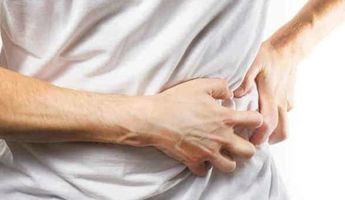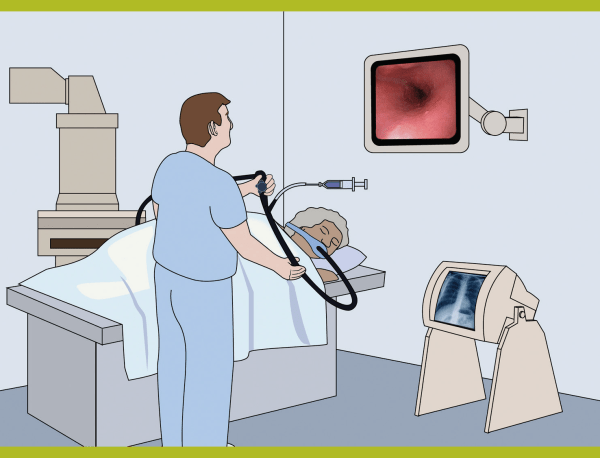Endoscopic Retrograde Cholangiopancreatography (ERCP) in Switzerland
Search and Compare the Best Clinics and Doctors at the Lowest Prices for Endoscopic Retrograde Cholangiopancreatography (ERCP) in Switzerland

Find the best clinics for Endoscopic Retrograde Cholangiopancreatography (ERCP) in Switzerland
No pricing info available
India offers the best prices Worldwide
Price: $ 614
From 40 verified reviews
Lena Meier, 22 September 2020
I can't think of a better place for our daughter's birth. With the team at Klinik Im Park, I felt that I was in the best hands at all times. In the newly renovated rooms in the maternity ward, you feel like you are in a 5-star hotel. An all-round perfect start for our daughter and her parents ;-)
From 21 verified reviews
Doriana RIVA, 10 September 2020
A huge thank you to the healthcare team who took care of me urgently on April 22, 2020. The welcome at the front desk, the anesthesia team, the assistants, the nurses in the operating room and the recovery room were so sweet and very attentive.I will never forget that time spent with you. Good luck to everyone, e.D. Riva
Klinik Hirslanden, located in Witellikerstrasse, Zurich, Switzerland offers patients Endoscopic Retrograde Cholangiopancreatography (ERCP) procedures among its total of 530 available procedures, across 28 different specialties. Currently, there's no pricing information for Endoscopic Retrograde Cholangiopancreatography (ERCP) procedures at Klinik Hirslanden, as all prices are available on request only. All procedures and treatments are undertaken by the lead specialist at the Clinic, and they are not accredited by any recognized accreditations institutes
- Home
- Switzerland
WHY US?
At Medijump, we're making medical easy. You can search, compare, discuss, and book your medical all in one place. We open the door to the best medical providers worldwide, saving you time and energy along the way, and it's all for FREE, no hidden fees, and no price markups guaranteed. So what are you waiting for?

Free

Best Price

Widest Selection

Risk-Free
What you need to know about Endoscopic Retrograde Cholangiopancreatography (ERCP) in Switzerland

Endoscopic Retrograde Cholangiopancreatography (ERCP) is a procedure to diagnose and treat problems of the bile and pancreatic duct by combining upper gastrointestinal endoscopy and X-rays. For diagnostic purposes, the procedure is performed to find the cause of obstructive jaundice, chronic pancreatitis, and pancreatic tumor. For therapeutic purposes, the procedure can be performed to extract gallstones or other biliary debris, to treat the sphincter of Oddi (endoscopic sphincterotomy), to insert a stent into the common bile duct and/or the pancreatic duct, and to dilate the strictures.
What does a Endoscopic Retrograde Cholangiopancreatography (ERCP) Procedure Involve?
Most of ERCP are carried out under local anesthetic, but in some cases, you may receive a general anesthetic. Your doctor inserts the endoscope (a long flexible tube with light and camera on its end) through your mouth and down to the esophagus, stomach, and the first part of the small intestine. Then, your doctor passes a tube through the endoscope and injects a dye, which will highlight the organ on the X-ray.
How Long Should I Stay in Switzerland for a Endoscopic Retrograde Cholangiopancreatography (ERCP) Procedure?
You can leave the hospital on the same day of the procedure or you may need to stay overnight. You’ll likely discuss the result of the diagnosis once you regained consciousness or the next day of the procedure. Plan to stay in Switzerland for 2 to 3 days to allow for a recovery period.
What's the Recovery Time for Endoscopic Retrograde Cholangiopancreatography (ERCP) Procedures in Switzerland?
You must rest for at least 24 hours and you should be able to resume your normal activities the next day after the surgery, but make sure to take things easy for a couple of days.
What sort of Aftercare is Required for Endoscopic Retrograde Cholangiopancreatography (ERCP) Procedures in Switzerland?
You will need to avoid strenuous activities for several days and follow a special diet during your recovery period. Your doctor will give you instructions on how to care for yourself after the procedure.
What's the Success Rate of Endoscopic Retrograde Cholangiopancreatography (ERCP) Procedures in Switzerland?
ECRP is safe and effective. However, it has been estimated that the procedure carries around 3.5 to 5 percent risk of post-ERCP pancreatitis (PEP). Other side effects and risks associated with ECRP include infection of the gallbladder or the bile duct, excessive bleeding (hemorrhage), perforation in the pancreatic or bile ducts, tissue damage from X-ray exposure, and an abnormal reaction to the sedative. Complications occur in about 5 to 10 percent of all ERCP procedures.
Are there Alternatives to Endoscopic Retrograde Cholangiopancreatography (ERCP) Procedures in Switzerland?
If ERCP is not the right procedure for you, your alternatives include endoscopic ultrasound, CT Scan, and MRI or MRCP (a special MRI of the bile ducts).
What Should You Expect Before and After the Procedure
The result of ERCP will help your doctor confirm their diagnosis about your health problem, which will help them consider the best treatment option for you.
Whilst the information presented here has been accurately sourced and verified by a medical professional for its accuracy, it is still advised to consult with your doctor before pursuing a medical treatment at one of the listed medical providers
No Time?
Tell us what you're looking for and we'll reachout to the top clinics all at once
Enquire Now

Popular Procedures in Switzerland
Prices Start From $106

Price on Request

Prices Start From $131

Prices Start From $47

Recommended Medical Centers in Switzerland for Endoscopic Retrograde Cholangiopancreatography (ERCP)

- Interpreter services
- Translation service
- Religious facilities
- Medical records transfer
- Medical travel insurance
- Health insurance coordination
- TV in the room
- Safe in the room
- Phone in the room
- Private rooms for patients available

- Interpreter services
- Translation service
- Religious facilities
- Medical records transfer
- Medical travel insurance
- Health insurance coordination
- TV in the room
- Safe in the room
- Phone in the room
- Private rooms for patients available

- Interpreter services
- Translation service
- Religious facilities
- Medical records transfer
- Medical travel insurance
- Health insurance coordination
- TV in the room
- Safe in the room
- Phone in the room
- Private rooms for patients available

- Interpreter services
- Translation service
- Religious facilities
- Medical records transfer
- Medical travel insurance
- Health insurance coordination
- TV in the room
- Safe in the room
- Phone in the room
- Private rooms for patients available

- Interpreter services
- Translation service
- Religious facilities
- Medical records transfer
- Medical travel insurance
- Health insurance coordination
- TV in the room
- Safe in the room
- Phone in the room
- Private rooms for patients available

- Interpreter services
- Translation service
- Religious facilities
- Medical records transfer
- Medical travel insurance
- Health insurance coordination
- TV in the room
- Safe in the room
- Phone in the room
- Private rooms for patients available

- Interpreter services
- Translation service
- Religious facilities
- Medical records transfer
- Medical travel insurance
- Health insurance coordination
- TV in the room
- Safe in the room
- Phone in the room
- Private rooms for patients available

- Interpreter services
- Translation service
- Religious facilities
- Medical records transfer
- Medical travel insurance
- Health insurance coordination
- TV in the room
- Safe in the room
- Phone in the room
- Private rooms for patients available
Endoscopic Retrograde Cholangiopancreatography (ERCP) in and around Switzerland
About Switzerland
Switzerland is a landlocked country located in Europe and is famous for its chocolate and clocks; this country offers its visitors beautiful landscapes, medieval towns, modern art, avant-garde culture, and Alpine tradition. From the Swiss Alps and the Jura Mountains to Renaissance-era allegorical statues and medieval architecture, Switzerland provides an unforgettable experience for everyone. Today, the country is popular with medical tourists who travel here for top quality elective surgery and dentistry. The healthcare system is world-renowned and beyond impressive, with highly qualified doctors and staff who work in ultra-modern hospitals and clinics. According to the WHO, Switzerland’s public health services system is one of the most effective in the world. A full range of advanced medicine and technology are available here, from heart surgery, orthopedics, neurosurgery, to oncology.
Popular Cities and Regions in Switzerland
Most medical tourists travel to Bern, the de facto capital of Switzerland. Here, tourists can walk around the historic town center that is brimming with churches, cobblestone streets, medieval clock towers, and well-preserved sandstone homes. The main attractions in this city are Zentrum Paul Klee and Kunstmuseum. Besides Bern, Zürich is a famous destination for medical tourists. Set on the beautiful Zurich Lake, this city offers many amazing medical centers and tourist attractions. It’s a culturally vibrant city that is recognized as one of the most liveable cities in the world. Tourists are welcome to visit Fraumüster, explore Schweizerisches Landesmuseum, and admire art at Kunsthaus. Along with Bern and Zürich, Geneva is also popular. It has the world’s largest fountain, a historic city center, and spectacular views of Lake Geneva.
Transport in Switzerland
Zurich Airport is the main gateway to Switzerland. It serves regular scheduled and charter flights to and from numerous cities in Europe, North America, and Asia. Public transport in the country is comprehensive. Trains are comfortable and scenic, and buses take over where the rails run out. Taxis and Uber are available to travel inside cities.
Visas in Switzerland
As a part of the Schengen Agreement, Switzerland allows citizens of 62 countries, including Australia and the US, to stay in the country without a visa for up to 90 days. Nationals of most other countries are required to have a Schengen visa to enter the country.
Weather in Switzerland
Winter (November – March) is cold and snowy, with an average temperature of 5 to 10°C in Zurich. It’s a popular time for tourists who want to ski. Spring (April – June) has warmer weather, although some areas still experience snowfall. Summer (July – August) brings perfect and warm weather, with an average temperature of 27°C. Autumn (September – October) is still warm but the days are becoming shorter.
Additional Info
- Local Currency: The currency is the Swiss Franc (CHF). 1 CHF is equivalent to 1.04 USD.
- Money & Payments: ATMs can be found easily and major credit cards (Visa and MasterCard) are widely accepted. Tipping is not necessary.
- Local Language: Switzerland has four official languages: German, French, Italian, and Romansh. Most of the population speaks excellent English, especially those in major cities.
- Local Culture and Religion: The predominant religion is Christianity, which has been present in the country since the Roman Era. The country guarantees full freedom of religion, and Islam, Hinduism, Buddhism, Judaism, as well as other religions are practiced by a small portion of the population.
- Public Holidays: Switzerland has several public holidays, including New Year’s Day, Berchtold's Day, Corpus Christi, Immaculate Conception Day, and Christmas Day.
Popular Searches
- Plastic Surgery in Thailand
- Dental Implants in Thailand
- Hair Transplant in Thailand
- Breast Augmentation Thailand
- Gastric Sleeve in Thailand
- Gender Reassignment Surgery in Thailand
- Laser Hair Removal in Bangkok
- Botox in Bangkok
- Dermatology in Bangkok
- Breast Augmentation in Bangkok
- Coolsculpting in Bangkok
- Veneers in Turkey
- Hair Transplant in Turkey
- Rhinoplasty in Turkey
- Stem Cell Therapy in Mexico
- Rhinoplasty in Mexico
- Liposuction in Mexico
- Coolsculpting in Tijuana
- Rhinoplasty in Korea
- Scar Removal in Korea
- Gastric Sleeve in Turkey
- Bone Marrow Transplant in India
- Invisalign in Malaysia
- Plastic Surgery in the Dominican Republic
- Tummy Tuck in the Dominican Republic
- Plastic and Cosmetic Surgery in Poland
- Rhinoplasty in Poland
- Hair Implant in Poland
- Dental Implants in Poland
- IVF in Turkey


